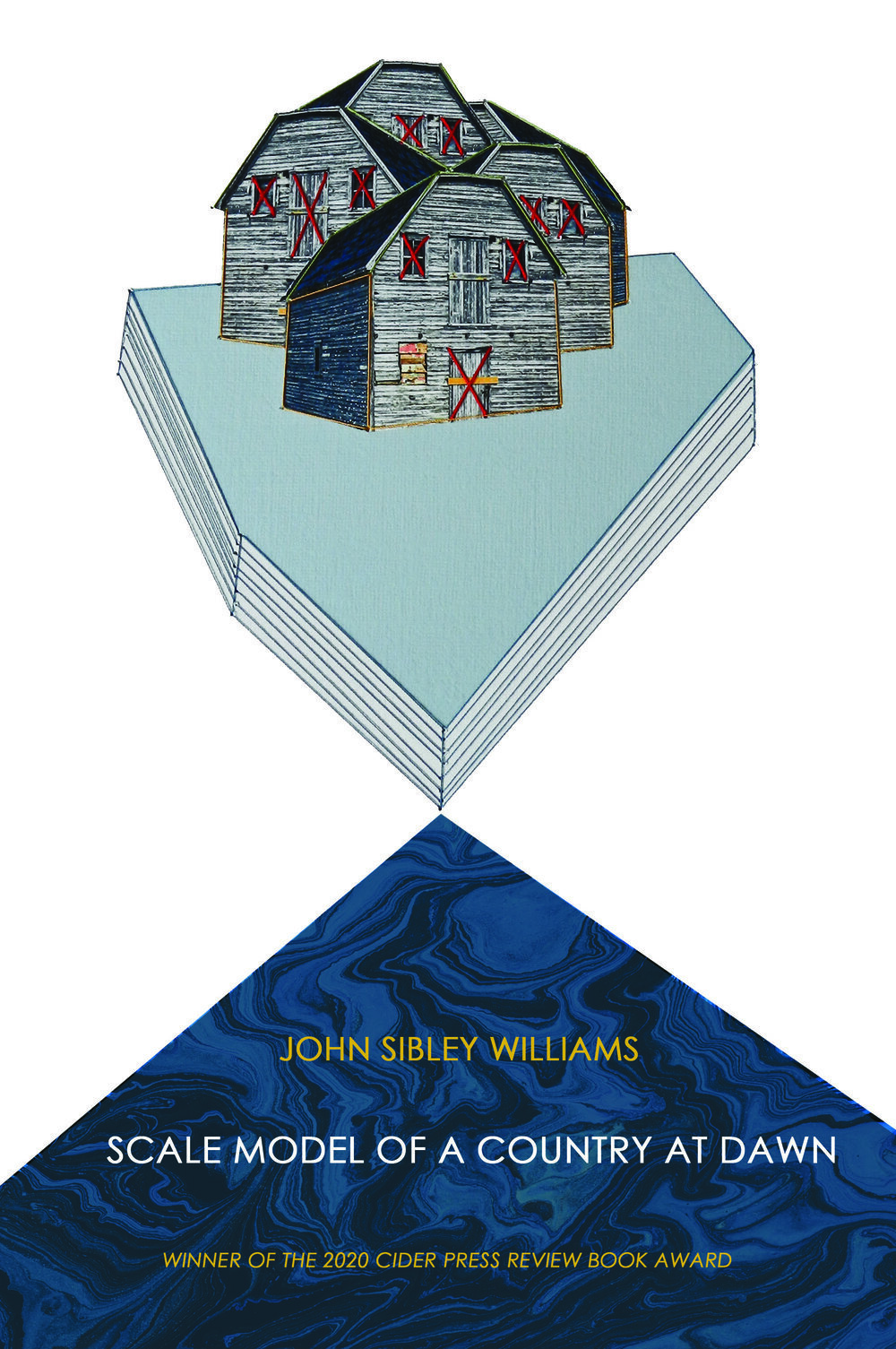REVIEW OF JOHN SIBLEY WILLIAMS’ SCALE MODEL OF A COUNTRY AT DAWN
by Carla Panciera
Scale Model of a Country at Dawn is the winner of the 2020 Cider Press Book Award and the sixth collection by John Sibley Williams, a decorated poet whose work has appeared in numerous journals and anthologies including Best American. And no wonder. These are beautifully crafted poems, stunning in their use of imagery and devastating in their truths.
Page by page, Sibley’s newest poems are as carefully strung together as prayer beads, and it is possible to read them the same way one fingers, say, one’s rosary. Grounded by running our hands along the familiar, we are left to concentrate on what we are praying to or for. We are immersed in the transcendent power of poetry.
Stanley Kunitz once said, “The deepest thing I know is that I am living and dying at once, and my conviction is to report that dialogue.” Williams, too, reports “that dialogue” throughout this collection that explores both profound loss and the equally inescapable beauty of the world. In “Orbit // Obit”, written after a friend’s suicide, he writes:
the light struggling through these disrobed
trees hurts like a given-up-on century, like
bruised apples sinking deeper into winter,
like watching you trace a star’s path
with what would become your trigger finger
back and forth against a brilliantly
vanquished sky.
Light and dark, grief and love, these are the contrasts that keep us paying attention, that propel us forward into whatever is next. In Williams’s work, what’s next are images so exact, so recognizable, they startle. He gives us the despair of “bourbon and boarded up mills”, and a “crane rusted in place;/mid-air, useless.” Though we know this world, we are continually surprised by it and powerless to turn away from what it lays before us.
Yet Williams also tells us, “The kindest/thing about being human is that everything/gifts us its image—for a moment, or forever.” So while we can’t turn away from some things, we can also notice that, against this backdrop we can’t ignore, “the children are busy/fashioning their feathers/from gray trampled snow.”
Much like a supplicant, the speaker in Williams’ poems is always looking up toward a changing sky. There is faith here in something greater. For example, the collection is a constellation in and of itself, pages studded with “too many stars/to snuff out in one lifetime,” stars that “can be shelter enough,” stars that connect us to ancient myths, to our own ancestors, to the generations still to come.
In “Oncology”, the poet’s gifts are most evident. He seamlessly riffs on the various definitions of “ward:”
as in a neighborhood
carved from the body
of a city; as in a child
raised by childless
parents or some great
aunt he’s never met.
…until he arrives at the poem’s shift: “as in the part of a lock/that keeps the wrong key/from turning, a malignancy/from entering,” in this case, the body of his infant. He can, through word play and association, lead you unsuspectingly to his heartbreaking conclusions.
Williams is a true fan of the motif. Prayer beads might inspire worship by repetition, but this poet sees “repetition/as worship.” These pages are full of fire and “doe tracks,” rope and bridges and song. In this way, he tethers us to the ordinary, the concrete, despite all of the abstract questions of loss and our inevitable impermanence. “Proof that we were ever here is already disappearing,” he writes in “Salinas,” but maybe understanding we aren’t here forever guards us against the worst forces of grief.
Carla Panciera’s collection of short stories, Bewildered, received AWP’s 2013 Grace Paley Short Fiction Award. She has also published two collections of poetry: One of the Cimalores (Cider Press) and No Day, No Dusk, No Love (Bordighera). A second collection of short stories, Barnflower, will be published by Loom Press in 2023.

